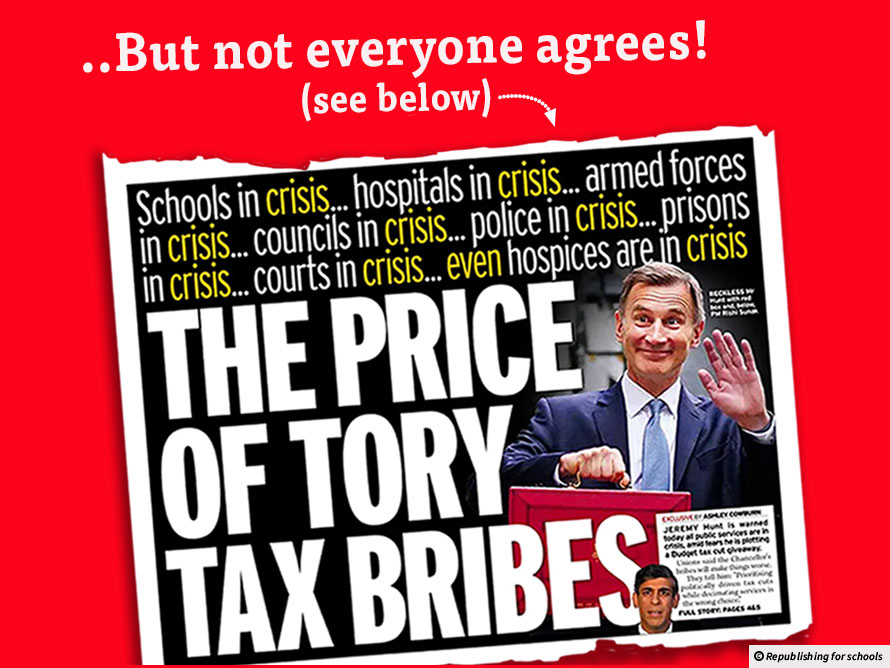Is tax theft? As Britain’s chancellor Jeremy Hunt prepares for tomorrow’s budget, age-old arguments about how much money the government takes from people are being reignited.
Hunt claims budget giveaway is ‘moral duty’
 Battleground: The Daily Mirror yesterday accused the Tories of sacrificing public services.
Battleground: The Daily Mirror yesterday accused the Tories of sacrificing public services. Glossary
Tax - Money workers pay to the government to pay for services like roads and hospitals.
Beatles - An English rock band formed in Liverpool in 1960, and is widely regarded as one of the most influential bands of all time. They played for ten years between 1960 and 1970, with Paul McCartney as co-lead vocalist, bassist, and songwriter.
Harold Wilson - The UK's Labour party prime minister from 1964 to 1970 and 1974 to 1976.
Labour - Britain's main left-of-centre political party.
Conservatives - A traditionally right-wing or centre right political party in the UK. Members are sometimes called Tories.
Chancellor - The Chancellor of the Exchequer is the minister responsible for the British government’s economic policy. The job is often regarded as second in power and important to that of the prime minister.
Invest - Put money into.
Left-wing - A range of beliefs that are the opposite of right-wing ideas. People on the political left usually believe in collective responsibility and the good of society. They often, though not always, support higher taxes and a more active, interventionist government.
